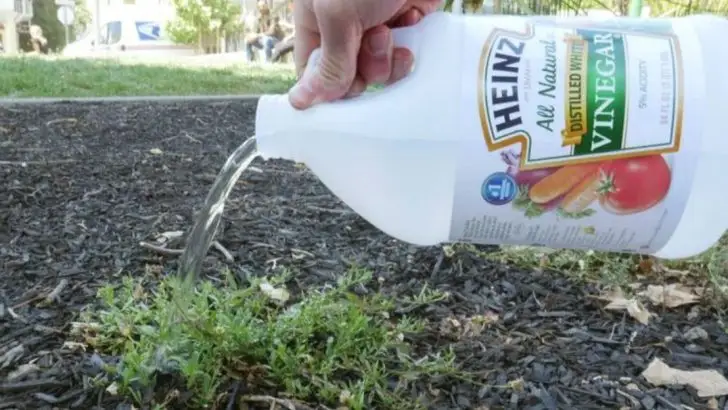Vinegar is often praised as a natural weed killer, but in the garden, it’s not always your best friend. While it seems like a cheap and eco-friendly solution, vinegar can damage soil health, harm beneficial insects, and even burn your plants. Many gardeners use it with good intentions—only to regret it later.
If you’re looking for ways to control weeds or pests without the hidden risks, there are safer, plant-friendly options. From boiling water and mulch barriers to organic sprays and manual techniques, these alternatives protect your garden’s ecosystem while still getting the job done. Let’s explore the downsides of vinegar—and the smart swaps your plants will thank you for.
Vinegar Harms Beneficial Plants
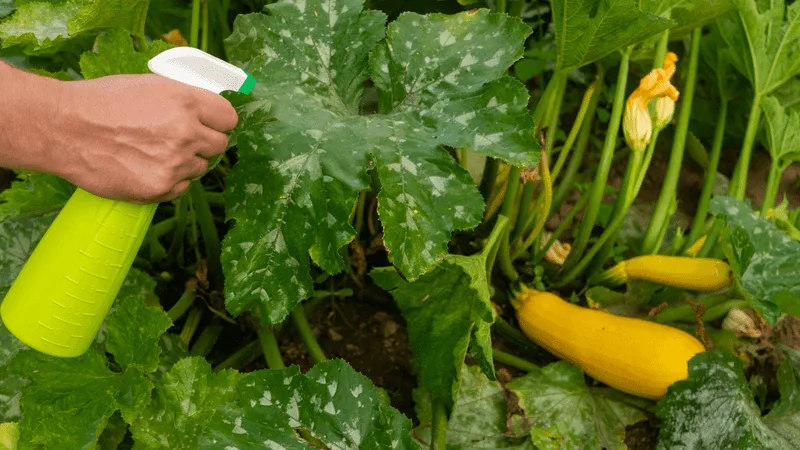
Accidentally spraying vinegar on desired plants can cause them to wilt due to its acidic nature. Unlike targeted herbicides, vinegar doesn’t discriminate, potentially harming your flourishing greens. Gardeners may find themselves unintentionally damaging their prized blooms while attempting to eliminate weeds. This can lead to costly replacements and disrupt the aesthetic harmony of the garden.
Vinegar Alters Soil pH
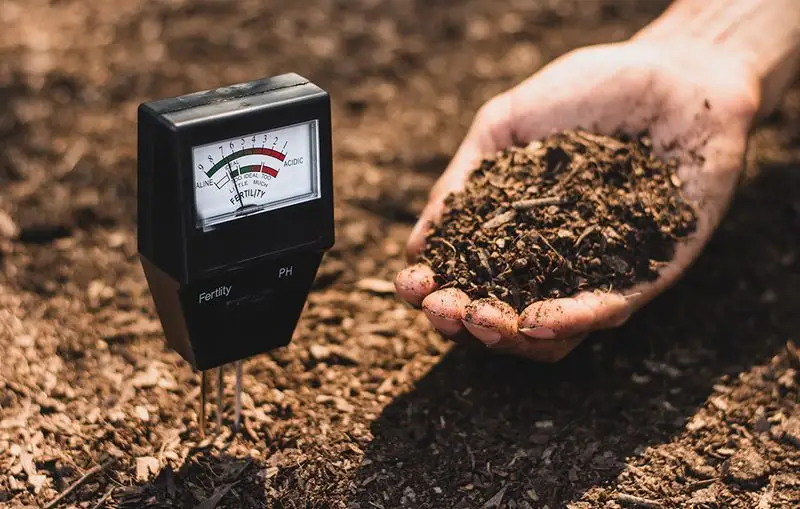
Applying vinegar can lower the soil pH, making it more acidic. This alteration may not suit all plants, particularly those that thrive in neutral to alkaline soils. Over time, the persistent use of vinegar can lead to imbalanced soil ecology, affecting plant growth and health. Adjusting the soil back to its optimal pH requires additional efforts and resources.
Vinegar’s Short-lived Effectiveness
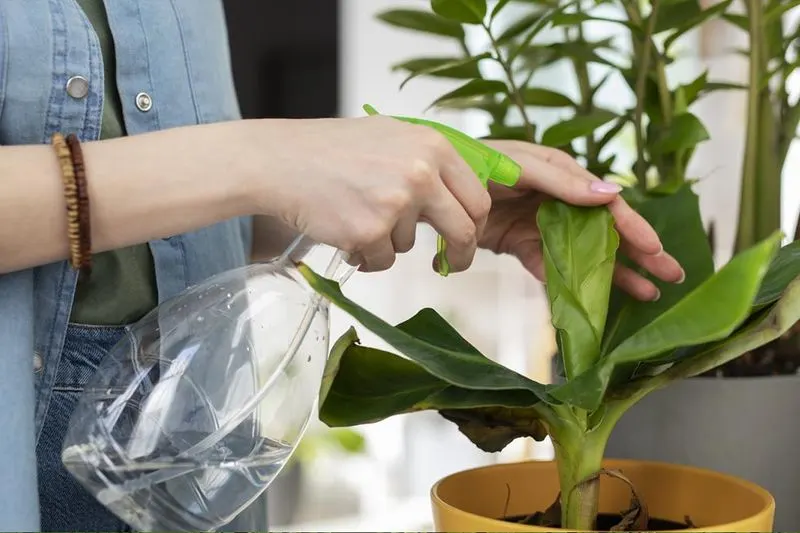
While vinegar may kill weeds upon contact, its effects are often temporary. Persistent weeds can return, forcing gardeners to reapply frequently. This repeated application not only consumes more vinegar but also contributes to a cycle of ongoing garden maintenance. For those seeking a long-term solution, vinegar might prove more hassle than help.
Vinegar May Harm Soil Microbes
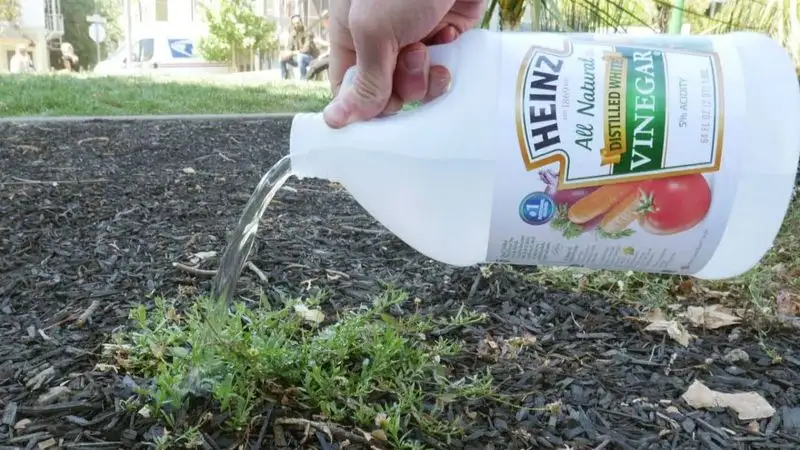
The use of vinegar in gardens can inadvertently harm beneficial soil microbes. These tiny organisms are vital for nutrient cycling and plant health. Vinegar’s acidity can disrupt their environment, reducing microbial diversity and soil fertility. A garden’s natural ecosystem relies heavily on these microbes, and their depletion can have far-reaching effects.
Vinegar’s Non-selective Action
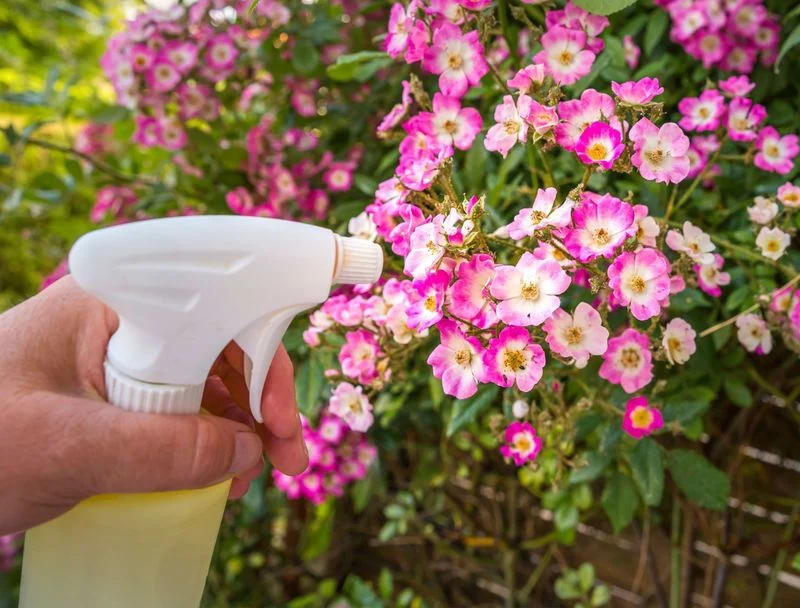
Unlike selective herbicides, vinegar affects all plants it contacts, not just weeds. This non-selective action means that careful application is necessary to avoid collateral damage. Even with caution, some desirable plants might still suffer. This indiscriminate nature can turn a simple weed control task into a challenging balancing act.
Vinegar’s Limited Use in Large Areas
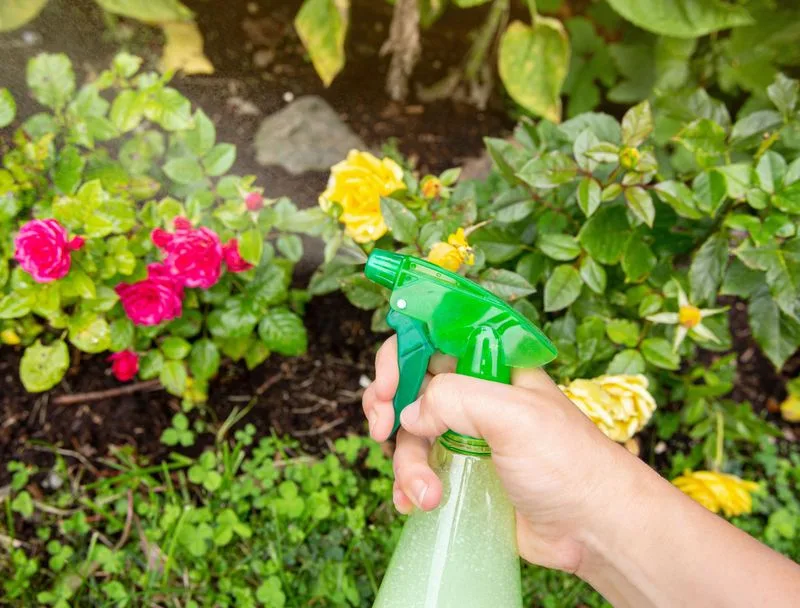
Using vinegar for weed control in extensive garden spaces can be impractical. The amount required to treat large areas is often too much, making it inefficient and costly. Gardeners with expansive plots may find vinegar unsuitable for their needs, prompting them to seek more scalable solutions that cover wide spaces effectively.
Alternative: Boiling Water for Weeds
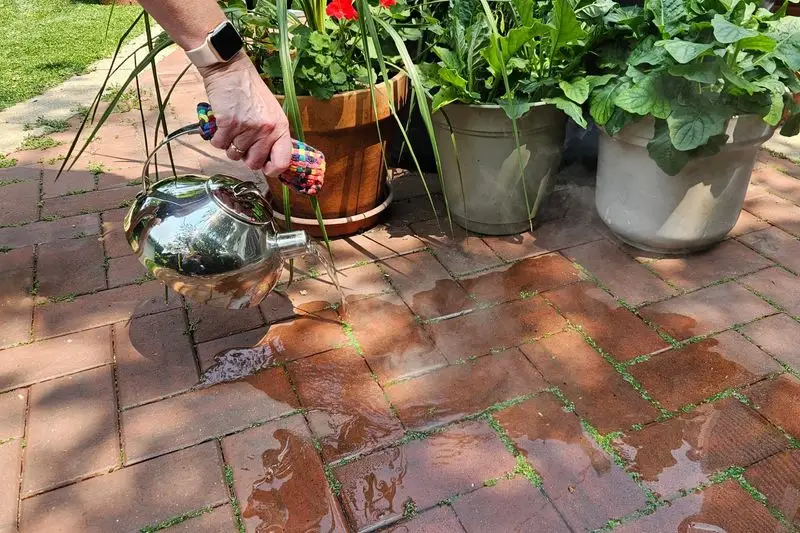
Boiling water offers a simple, effective method to kill weeds without harmful chemicals. The intense heat destroys plant cells, providing an immediate solution to unwanted growth. This approach is particularly useful for small patches or cracks in walkways. It’s a resourceful way to manage weeds, requiring just a kettle and water.
Alternative: Mulching for Weed Prevention
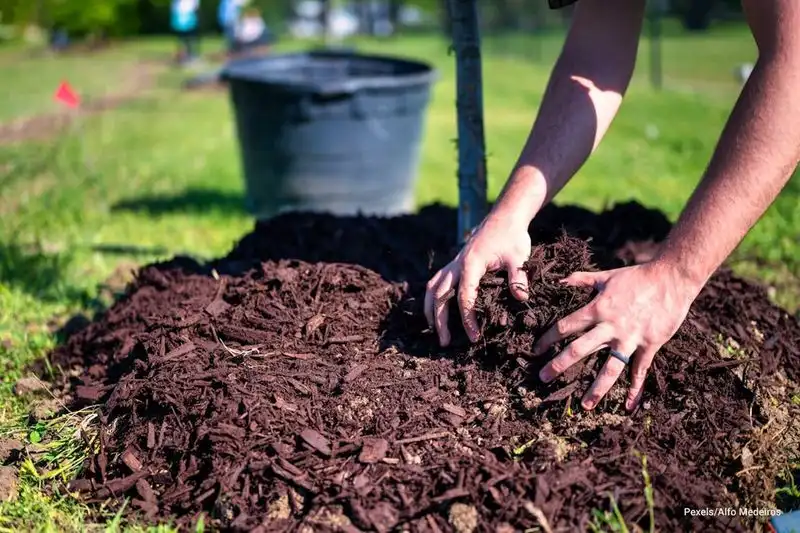
Mulching not only suppresses weeds but also enhances soil moisture and temperature regulation. A thick layer can block sunlight, preventing weed germination and growth. By also adding organic material to the soil, mulching nurtures beneficial organisms and improves soil health naturally. It’s an eco-friendly practice with multiple benefits.
Alternative: Hand Pulling Weeds
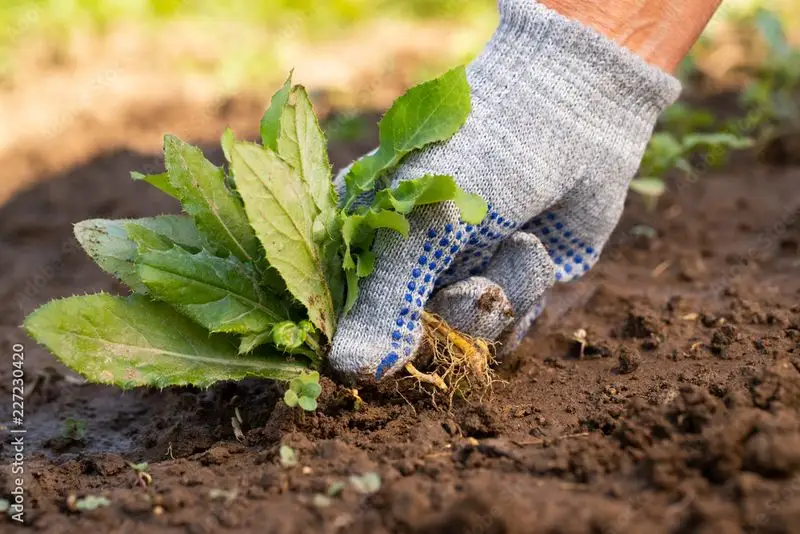
Using hands to remove weeds might seem labor-intensive, but it provides precision in targeting unwanted plants. This method allows gardeners to eliminate weeds without harming adjacent flora. Regular hand pulling can prevent weed establishment, reducing the overall weed seed bank in the soil. It’s a direct, mindful approach to garden maintenance.
Alternative: Vinegar Soap Solution
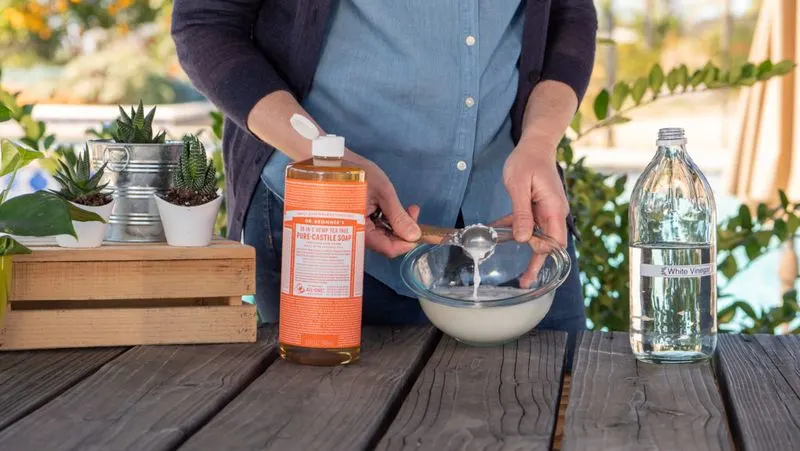
Combining vinegar with dish soap can enhance its weed-killing properties. The soap helps the solution adhere to plant surfaces, increasing effectiveness. This mixture is particularly beneficial for dealing with stubborn weeds. While still using vinegar, the soap addition makes the treatment more potent and localized, offering a slightly safer option.
Alternative: Crop Rotation

Crop rotation can naturally reduce weed prevalence by disrupting weed growth cycles. Changing plant positions each season prevents the establishment of weeds adapted to specific crops. This agricultural practice not only controls weeds but also boosts soil fertility and biodiversity. It’s a sustainable strategy for long-term garden health.
Alternative: Cover Crops
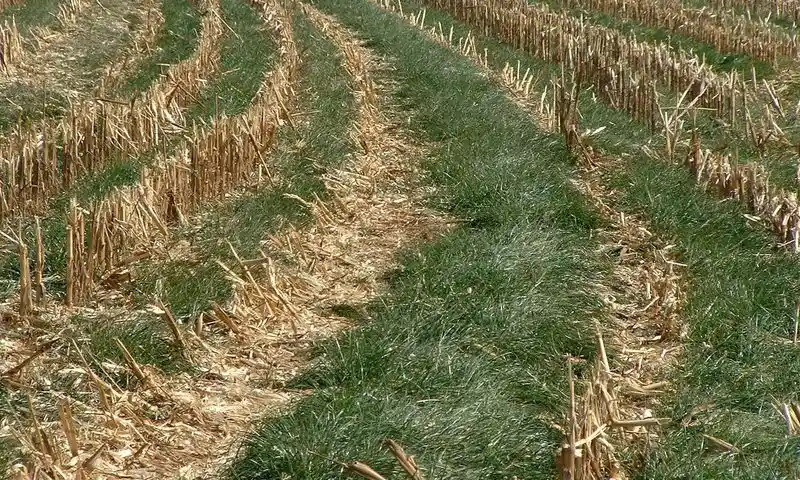
Growing cover crops can outcompete weeds for light and nutrients. These plants form a protective layer over the soil, preventing weed seeds from flourishing. Cover crops also contribute organic matter, improving soil structure and health. This method is a proactive, organic way to maintain weed-free garden beds.
Alternative: Organic Herbicides
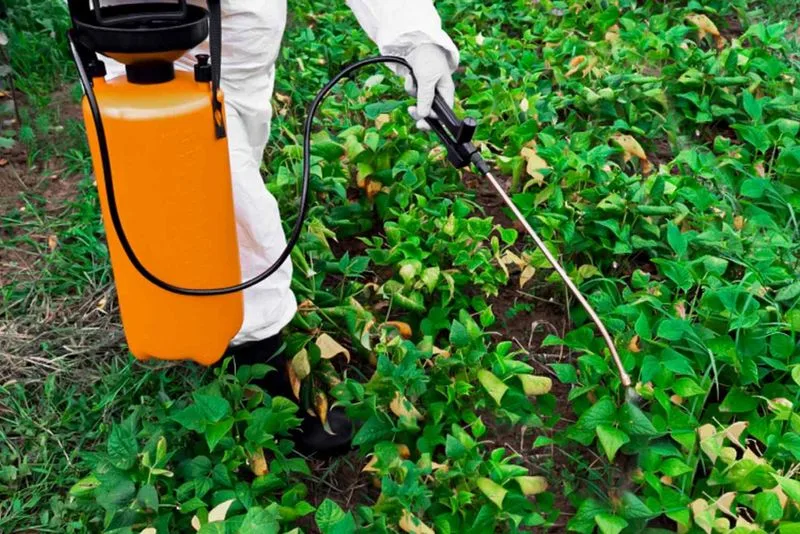
Organic herbicides offer a less harmful alternative to synthetic chemicals. These products use natural ingredients to target weeds while minimizing environmental impact. Suitable for various garden sizes, organic options provide flexibility and peace of mind. Gardeners can maintain their spaces responsibly without compromising on weed control.
Alternative: Vinegar as Last Resort
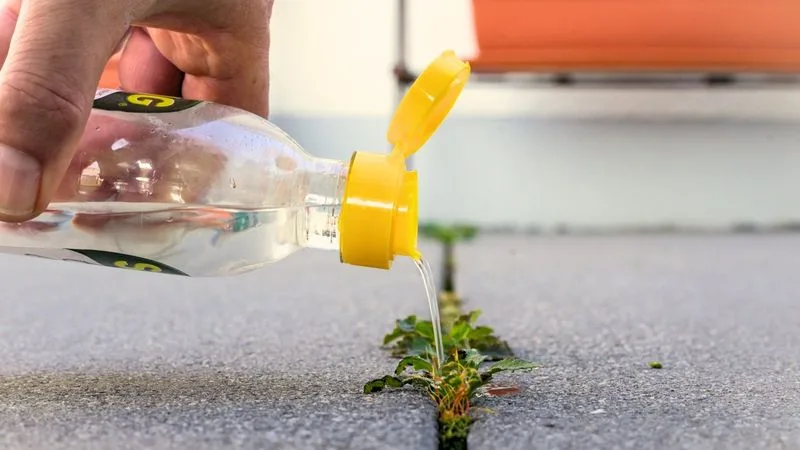
Despite its disadvantages, vinegar can still be useful in moderation. When all else fails, it can serve as a last resort for tackling persistent weeds. Using it sparingly and with precision can minimize adverse effects. This approach requires a careful balance, ensuring that vinegar’s use remains a small part of a broader, sustainable garden strategy.
Alternative: Natural Sunlight Blockers
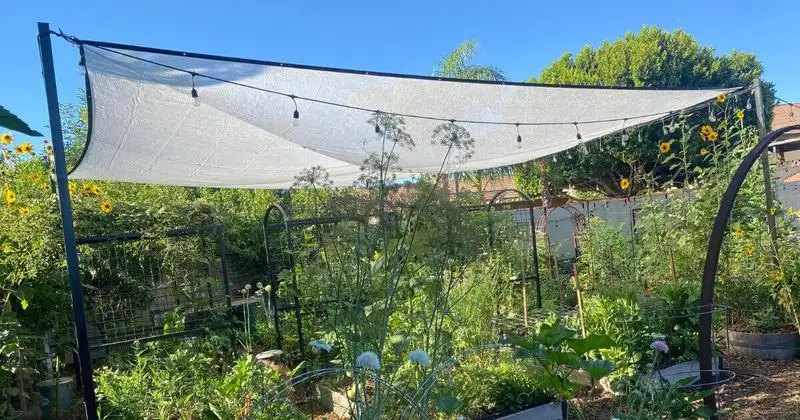
Using physical barriers like sheets or tarps can effectively block sunlight, starving weeds of the energy they need to grow. This technique is particularly useful for larger areas where manual weeding is not feasible. By depriving weeds of sunlight, this method helps control their spread without chemicals. It’s a straightforward, environmentally friendly approach.

